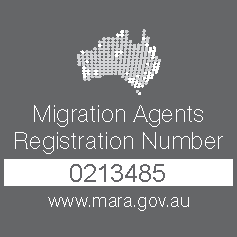The Aged Care industry has suffered critical labour shortages for some time now. Of all the recent changes announced to immigration, the introduction of the Aged Care Labour Agreement was one of them.
The Aged Care Industry Labour Agreement enables aged care labour providers to employ qualified direct care workers from overseas to work in the aged care sector where suitably qualified Australian workers are not available.
The Aged Care Labour Agreement can be used to sponsor overseas workers for the TSS Subclass 482 visa in the following occupations:
- Nursing Support Worker
- Personal Care Assistant
- Aged or Disabled Carer
Employers can sponsor overseas workers for permanent residence under the Employer Nomination Scheme Visa (subclass 186) visa if workers have at least two years of full-time work experience in Australia in a relevant direct care occupation.
In order to access the aged care labour agreement, employers must enter into a Memorandum of Understanding (MoU) with the relevant industry union, in this case, the Australian Nursing and Midwifery Federation, the Health Services Union or the United Workers Union.
It should also be noted that the Aged Care Labour Agreement does not apply to registered or enrolled nurses.
A snapshot of the Aged Care industry
In 2020 a census of the aged care industry was conducted. At the time, 434,107 people worked in aged care. This was across Residential Aged Care (RAC), the Home Care Package Program (HCPP) and the Commonwealth Home Support Program (CHSP). At the time of the census, there were 22,000 job vacancies in the aged care industry with that figure predicted to increase. Australia’s aging population has meant that the demand for aged care labour has increased yet the number of people working in aged care has not grown with this demand.
Workers in the aged care labour sector are generally older. 50% of workers in residential aged care are under the age of 40 while only 33% of workers in the Home Care Package Program and 30% in the Commonwealth Home Support Package Program are under 40 years of age.
The average salary within the aged care sector is $58,149 per annum with entry level positions starting with a salary of $53,203. More experienced aged care workers may earn around $74,867.
The roles covered in the Aged Care Labour Agreement
Each of the roles covered by the aged care labour agreement are crucial to the aged care sector.
Nursing Support Worker
Nursing support workers provide limited general patient care under the direction and supervision of registered nurses within health care facilities. Tasks can include:
- Assisting patients with personal care needs such as showering, dressing and eating
- Assisting patients with mobility and communication needs
- Participating in planning the care of individuals
- Following therapy plans such as interventions to assist those with dementia and behavioural problems
- Observing and reporting changes in patients’ conditions
- Assisting with rehabilitation exercises
- Providing basic treatment and delivery of medications
Personal Care Assistant
Personal care assistants provide routine personal care services to people in health care facilities or in their home. Tasks include:
- Assisting with personal care needs such as showering, dressing, eating, mobility and communication
- Participating in planning the care of individuals
- Following therapy plans such as interventions to assist those with dementia and behavioural problems
- Observing and reporting changes in patients’ conditions
- Assisting with rehabilitation exercises, basic treatment and delivery of medication
Aged or Disabled Care Worker
An aged or disabled care worker supports elderly or disabled people by assisting them with daily activities and personal tasks. This type of work can take place in a residential care facility or in the client’s home. In some cases, the care worker may live with the person requiring care. Tasks can include:
- Accompanying and assisting with daily activities
- Preparing meals and drinks
- Arranging social activities such as outings or visits with family and friends
- Providing transport to medical appointments and other activities
- Tidying, cleaning and sanitising the client’s home
- Helping with personal hygiene and getting dressed
- Providing companionship, friendship and emotional support
- Shopping and running errands
Aged Care Industry Labour Agreement terms and concessions
As part of the Aged Care Labour Agreement, the following terms and concessions apply:
- Two-year pathway to permanent residence through the Employer Nomination Scheme
- Streamlined visa nomination and priority visa processing
- No post qualification work experience requirement
- English language concessions for workers with relevant community language skills
- Annual salary of at least $51,222 AUD or the Australian market salary rate, whichever is higher
Key visa application requirements
In order to be eligible to apply for a visa under the Aged Care Labour Agreement, applicants must:
- Hold a relevant AQF Certificate III or equivalent, or higher qualification. 12 months of relevant work experience or part-time equivalence will also suffice.
- Obtain a positive skills assessment from the Australian Nursing and Midwifery Accreditation Council or the Australian Community Workers Association if the qualification was obtained overseas. This condition also applies if work experience is claimed in lieu of formal qualifications.
- Have an English language proficiency level of at least IELTS 5.0 or equivalent. Workers with target community language skills employed by culturally and linguistically diverse aged care providers need at least IELTS 4.5 or equivalent.
Skill and qualification requirements will be specified under the terms of each labour agreement and will differ from those stipulated in the ANZSCO.
Once a Memorandum of Understanding has been entered into with the relevant union, labour market testing requirements will be considered satisfied.
What impact does the Temporary Skilled Migration Income Threshold (TSMIT) have on the Aged Care Agreement?
Like many changes in immigration, nothing is black and white. The introduction of the Aged Care Labour Agreement is good news for the industry but the recent increase in the Temporary Skilled Migration Income Threshold TSMIT is a point of contradiction.
It was recently announced that from 1st July 2023, the TSMIT would increase from $53,900 to $70,000. Whether this news is good, bad or indifferent depends on whether you’re an employer or migrant worker and what industry you belong to. There are many industries where the average wage is lower than the Temporary Skilled Migration Income Threshold TSMIT – aged care is one of them.
On average, workers in aged care earn $56,000 a year – well below the TSMIT. Usually, the consequence of wages being below the TSMIT would be that the employer would have to meet the $70,000 threshold or refrain from hiring overseas staff. This would be the case for many employers in the aged care industry and it is still unknown as to how the government will tackle this wage disparity.
While the Aged Care Labour Agreement is great for the industry, it will be interesting to see how the industry and the government address the issue of wages and the Temporary Skilled Migration Income Threshold.
If you are an aged care provider and have questions about the Aged Care Labour Agreement, contact the experienced team of registered migration agents at Visa Solutions Australia. Book a consultation.







